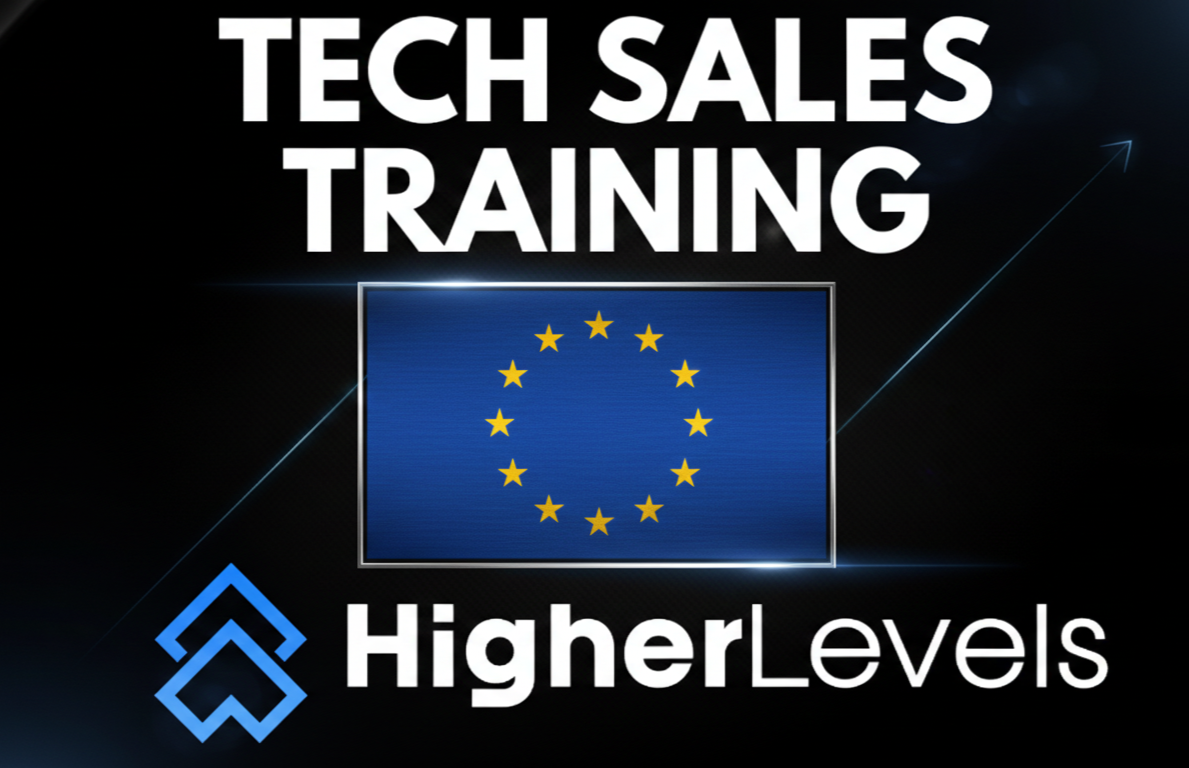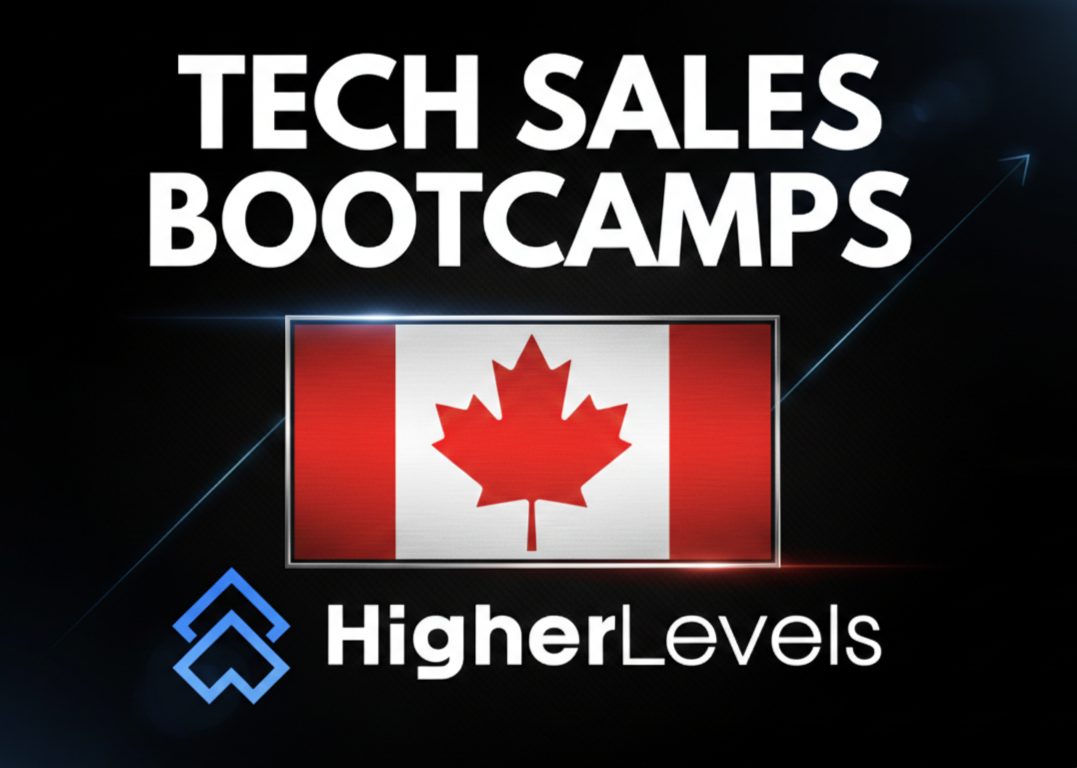What’s the Ideal Career Path in Tech Sales? Here’s What You Should Know
This blog breaks down the ideal tech sales career path by comparing big tech and startup roles, helping new and transitioning reps choose the right first move based on training, compensation, and long-term growth.
.png)

INTRO
This is one of the most common questions I get:
“Should I start my tech sales career at a big company like Oracle or go straight to a startup?”
There’s no one-size-fits-all answer. But based on what I’ve lived, and what I’ve seen across hundreds of reps I’ve coached, there is a smarter way to think about it. Your decision should depend on where you're starting, what kind of training you’ll get, and how fast you want to grow.
Let’s walk through the tradeoffs and talk through the right path depending on your background. Think of this like a real conversation over coffee, not some generic advice thread.
WHAT YOU’LL LEARN
- Why big tech companies are often the best first step for new reps
- How training, brand, and compensation differ between company types
- What to expect when jumping from big companies to startups
- What questions to ask in interviews to avoid bad environments
CONTEXT: WHY THIS MATTERS
Tech sales can be one of the fastest ways to build a high-income career. But it only works if you get the foundation right. Most people over-optimize for title or startup hype too early and end up stalled out after their first year.
“Your first role isn’t about chasing a unicorn. It’s about learning how to actually sell.”
This blog breaks down how to start smart, build skills, and create momentum that compounds.
IF YOU’RE NEW TO SALES, START HERE
If you're right out of college or transitioning from another career, here's the simplest answer:
Start at a company with solid training, even if the product isn’t exciting.
Why? Because early in your career, structure matters more than upside. You need a consistent motion, experienced leadership, and a playbook that teaches you how to run a proper sales process.
Let’s say you land a role at Salesforce, Oracle, AWS, or MongoDB. As an SDR, you’re probably looking at a $55K to $70K base with total comp around $90K to $110K. You might not love the tech, but the reps around you are experienced. The training is real. And you’re learning how to work with execs at billion-dollar companies, not just winging it on cold calls.
More importantly, you have a brand behind you. Prospects more readily take your calls. That makes a huge difference when you’re trying to build confidence and get reps in.
STARTUPS CAN WORK TOO, BUT YOU HAVE TO BE READY
Now, if you’re thinking, “But I want to grow fast. I want to avoid all the red tape and get promoted quick,” I hear you.
That’s the path I took.
I started at a high growth startup. Got promoted in three and a half months. Got promoted again not long after that because I continued to crush it. In under 3 years, I had an Enterprise Account Executive role that usually takes five to eight years to reach.
You won’t get that kind of acceleration at a massive company. But it only works if the environment is set up to support you.
I’ve seen plenty of people join a startup thinking it’s going to be scrappy and exciting, only to find out there’s no enablement, no training, and no real management. They get thrown in with no direction and end up struggling to ramp.
So if you're considering a startup, you need to ask real questions before signing:
- What does the first 30 days look like?
- How many reps are hitting quota right now?
- Who’s running onboarding, and what does it include?
- What kind of coaching will I get?
If they don’t have clear answers, you’re rolling the dice.
BIG TECH GIVES YOU SOMETHING MOST PEOPLE UNDERVALUE: CREDIBILITY
Let’s say you break into a big company. Maybe it’s not perfect. Maybe the tech doesn’t excite you. But you do solid work, learn the motion, and build pipeline.
Now you’ve got one of the most respected logos in tech on your resume.
That’s going to open a lot of doors.
Hiring managers at smaller SaaS companies know you’ve been trained. They know you’ve seen a real sales process. Even if you weren’t the top rep, that brand gives you instant credibility in your next interview.
Your resume gets more callbacks. Your interviews go smoother. You’re not just “another SDR” — you’re someone who’s done the job inside a high-performing org.
WHERE PEOPLE GET HURT: MOVING FROM BIG COMPANY TO STARTUP WITHOUT A PLAN
Here’s a trap I see all the time.
Someone starts at a big name, crushes it for a year, then says, “I want to join a startup and ride the rocket ship.”
They make the jump. But they don’t realize that success at Oracle or AWS doesn’t always translate to success at a startup.
At a startup, you might not have brand recognition. You’re not getting meetings just because of your company name. You have to generate your own pipeline from scratch, run your own outbound strategy, and often build parts of the motion yourself.
It’s a completely different skill set.
If you’re not prepared for that, it can hit hard. I’ve seen compensation drop, confidence dip, and reps churn out fast because they expected the same environment they came from.
So yes, the startup path can work. But don’t take it lightly. It’s a different game, and you need to treat it that way.
SO WHAT SHOULD YOU ACTUALLY DO?
Here’s the clearest advice I can give.
If you’re new to sales and you have the chance to join a company with strong training and a known brand, take it. You’ll build your foundation, learn how to sell, and set yourself up for long-term success.
If those roles aren’t an option, or you genuinely feel more drawn to a startup environment, that’s fine too. Just make sure you’re vetting the leadership, asking the right questions, and entering an environment where you can actually succeed.
The goal of your first role isn’t to get rich. It’s to learn the game.
If you do that well, your comp, promotions, and options will all follow.
FAQ
Q: What’s the best first sales job if I’m just breaking in?
A: A role at a well-known company with strong training is usually the best option. Companies like Salesforce, Oracle, or MongoDB set you up with structure and brand recognition.
Q: What’s typical SDR compensation at a big tech company?
A: Expect $50K to $70K base with total earnings between $80K and $110K in your first year.
Q: Are promotions faster at startups?
A: Yes, if you perform well. Startups can offer faster paths to AE or senior roles, but only if the environment supports you and you're producing results.
Q: What’s the risk of starting at a startup?
A: Poor training, limited support, and unclear sales processes. Make sure you vet the leadership and onboarding before joining.
Q: I started at a big company but want to grow faster. What should I do?
A: Use that brand to pivot into a faster-growing company with better coaching or a clearer promotion path. Your resume gives you leverage — use it wisely.
→ Want help choosing the right sales path or landing your first role? Join our Tech Sales Ascension program and/or check out our free community. We’ve helped over 1,000 reps break into tech sales and build high-earning careers with speed and clarity.
TL;DR
- Big companies give you structure, training, and resume value
- Startups offer speed, but only work if the leadership is strong
- Don’t chase titles in your first role — focus on learning the skill of sales
- What matters most is building a strong foundation that gives you options later
.svg)
.svg)
.svg)
.svg)
.svg)
.svg)

.png)



.svg)








